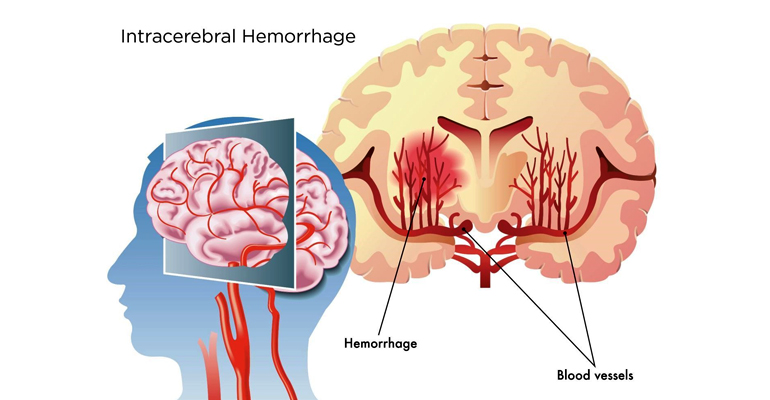

A Brain Hemorrhage occurs when there is bleeding in the brain. Bleeding can occur in the brain tissue or between the tissue and the skull.It is a medical emergency and requires immediate treatment. Delay can lead to serious complications or death.Dr Ravikiran Vutha is the Best Neurosurgeon For Brain Hemorrhage Surgery in Navi Mumbai.
Cerebral Hemorrhage is also known as cerebral hemorrhage.The causes of cerebral hemorrhage can vary.Survival rate for Brain Hemorrhage mainly depends on the initial treatment.
Common causes of Brain Hemorrhage can occur due to an underlying medical condition as well as a sudden accident.Here are some of the common and known causes of Brain Hemorrhage.If not treated quickly,brain can bleed to permanent brain damaged or death.A lack of oxygen to your brain can destroy your brain cells and prevent them from communicating with other parts of your body.Therefore Get in Touch with us For Best Neurosurgeon For Brain Hemorrhage surgery in Navi Mumbai.
In addition to accidents or Gallbladderinjuries, brain hemorrhage can also occur for other reasons.
Hypertension is one of the common causes of cerebral hemorrhage.High blood pressure must be controlled to avoid further complications.
Hemorrhagic stroke accounts for about 13% of stroke cases. It occurs when a weakened blood vessel ruptures and hemorrhages into the surrounding brain. The Blood pools and squeezes the surrounding brain tissue.
The symptoms of a brain bleed, or intracranial hemorrhage, differ depending on which part of the brain is affected.
Common brain bleeds symptoms include
Weakness, numbness, tingling, and Facial Paralysis .Often these symptoms affect the arm and leg on one side of the body.
Sudden, severe headaches known as thunderclap headaches.These headaches occur with subarachnoid hemorrhages.They are extremely painful and abrupt, with intense pain lasting from one to five minutes.This type of headache is not always dangerous.However, it could indicate a more serious, underlying condition involving a Brain Hemorrhage.
DBS is a surgical procedure used to treat a variety of neurological conditions including Parkinson's disease, essential tremor, dystonia, and obsessive-compulsive disorder (OCD). It involves implanting a small pacemaker-like device that sends electrical impulses to specific areas of the brain to help regulate abnormal brain activity.
DBS is most commonly used for Parkinson's disease: To reduce symptoms such as tremor, rigidity, and bradykinesia (slowed movements).
Essential Tremor: To control tremor in the hands or other parts of the body.
Dystonia: To reduce involuntary muscle contractions.
Obsessive-compulsive disorder (OCD): In some cases where other treatments are ineffective.
Other conditions: The drug is being investigated for the treatment of conditions such as depression and epilepsy.
DBS works by delivering electrical impulses through implanted electrodes to specific areas of the brain. These electrical impulses can alter brain activity, reducing symptoms associated with conditions such as Parkinson's disease or tremor.
The battery in a DBS device usually lasts 3-5 years. After that, it may need to be replaced. The device is adjustable by the physician, who can change the settings depending on the patient's response to treatment.